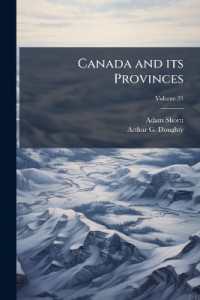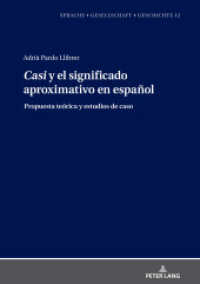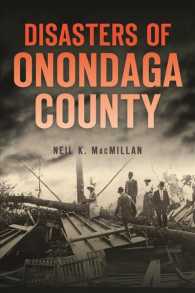- ホーム
- > 洋書
- > 英文書
- > Politics / International Relations
Full Description
Though Americans rarely appreciate it, federalism has profoundly shaped their nation's past, present, and future. Federalism—the division of government authority between the national government and the states—affects the prosperity, security, and daily life of every American. Some of the most spectacular political conflicts in American history have been fought on the battlefield of federalism, including states' rights to leave the union, government power to regulate business, and responses to the problems of race, poverty, pollution, abortion, and gay rights.
In the second edition of this nuanced and comprehensive text, David Brian Robertson shows that past choices shape present circumstances, and that a deep understanding of American government, public policy, political processes, and society requires an understanding of the key steps in federalism's evolution in American history.
New to the Second Edition
Emphasizes that federalism is a battleground that shapes every life inAmerica.
Extensively revised and updated, including new coverage of recent controversies like Ferguson, immigration, climate change, Obamacare, gay rights, the minimum wage, political polarization, voter identification, fracking, and marijuana legalization.
Brings together the newest developments in history, political science, law,and related disciplines to show how federalism influences government and politics today.
Includes chapter-opening vignettes that deal with contemporary cases and policy challenges.
Contents
1. Introduction
PART I. Bringing American Politics to Life
2. Federalism at the Founding
3. Federalism, Political Parties, and Interests
PART II. Enduring Fault Lines of American Politics
4. Federalism and Race
5. Federalism, Capitalism, and Economic Growth
PART III. The Construction of Active Government
6. Progressive Reform
7. The New Deal
8. Liberal Activism and Intergovernmental Relations
9. Federalism and Conservative Governance after 1980
10. American Federalism in the Twenty-First Century







